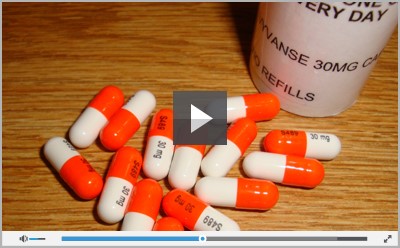The most dangerous psychiatric drug in America is sending more than 10,000 people a year to emergency rooms.
And those are the ones lucky enough to make it to the hospital on time.
It’s not some powerful schizophrenia pill or even one of the many antidepressants linked to everything from high blood pressure to suicides.
No, the most dangerous mind-altering drug in America is Ambien (zolpidem), a sleep drug sitting in millions of medicine cabinets right now.
A government report shows that ER visits linked to zolpidem have shot through the roof — but that’s only part of the story.
Because it turns out that zolpidem injuries and deaths may be thanks to one of the biggest labeling blunders in drug history. A tragic, 23-year-old decision that practically guaranteed we’d turn into a nation of sleeping pill addicts.
Crying ourselves to sleep
“I started Ambien and now I am worried about what will happen in 10 days.”
That’s what one new zolpidem user had to say after she filled her first prescription for the med. But lots of zolpidem users can predict exactly what’s going to happen in 10 days.
There’s a good chance users will become addicted to the drug, spending the next several months… or even years… popping the pill.
There are more than 5 million people, many of them seniors, taking zolpidem right now. And the CDC claims zolpidem is sending at least 10,000 people to the ER each year — more than any psychiatric drug (which is the classification for zolpidem).
Zolpidem has been linked to hallucinations, heart palpitations, dangerous falls, and even risky late-night strolls and drives you may never remember. But millions of people aren’t just taking zolpidem because of clever marketing — they’re taking it because they can’t quit this highly addictive drug.
And that’s a situation that the FDA practically guaranteed would happen.
When drug giant Sanofi submitted Ambien (the first zolpidem drug) for approval in 1992, it used studies that it claimed proved the drug was particularly effective for 4-5 weeks. Twenty-three years later, the Ambien label still carries that language.
But the FDA approved Ambien without understanding the long-term risks — and we now know that you can become addicted to the drug in just a couple weeks. A prescription for 4-5 weeks or longer puts patients at serious risk of getting hooked.
In fact, when the Institute for Safe Medication Practices (ISMP) researched zolpidem prescriptions, it found a “broad pattern of unsafe use.” More than two-thirds of those taking it were long-term users, with an average 229 days’ supply. And many people are on zolpidem for years.
And millions of zolpidem patients are taking the drug with absolutely no benefit. After two weeks, it only helps you fall asleep about three minutes faster — and the drug has never been proven to help you stay asleep.
Many zolpidem patients continue taking the drug because it feels much easier than quitting. They’ve heard the horror stories about withdrawal symptoms that can include anxiety, violent stomach cramps, sudden mood changes and even seizures.
But staying on the drug long-term can boost your heart attack risk by 50 percent and your chances of getting Alzheimer’s by a gigantic 84 percent.
If you’ve been taking zolpidem (it’s also sold as Ambien, Ambien CR, Intermezzo, Edluar and Zolpimist), quitting will be a challenge — but it’s important to work with your doctor on a plan to wean yourself off of the drug gradually.
And here are some suggestions that might make it easier to doze off without resorting to dangerous or addictive meds.
- Avoid eating a heavy meal shortly before bedtime. If you must have a late-night snack, try something that won’t spike your blood sugar, like a banana or some almonds.
- Stay away from the computer for an hour or two before you go to bed, and keep your bedroom free of electronic devices such as your laptop and smart phone.
- Even though we tend to doze off while watching late night television, TV viewing late at night has been proven to interfere with the quality of your sleep.
- After around two or three in the afternoon, opt for decaf tea or coffee. And before bedtime, try an herbal tea like chamomile. Chamomile is a natural sedative, and one study found it can help you fall asleep faster and reduce nighttime waking by one-third.
- Consider other natural solutions like melatonin and L-Theanine that can also help you drift off to dream land quickly — and, more importantly, safely.
Sources:
“ISMP Quarter Watch, May 6, 2015, ismp.org
“Safety concerns mount for sleeping pill zolpidem (Ambien)” Joe Graedon, May 7, 2015, The People’s Pharmacy, peoplespharmacy.com

